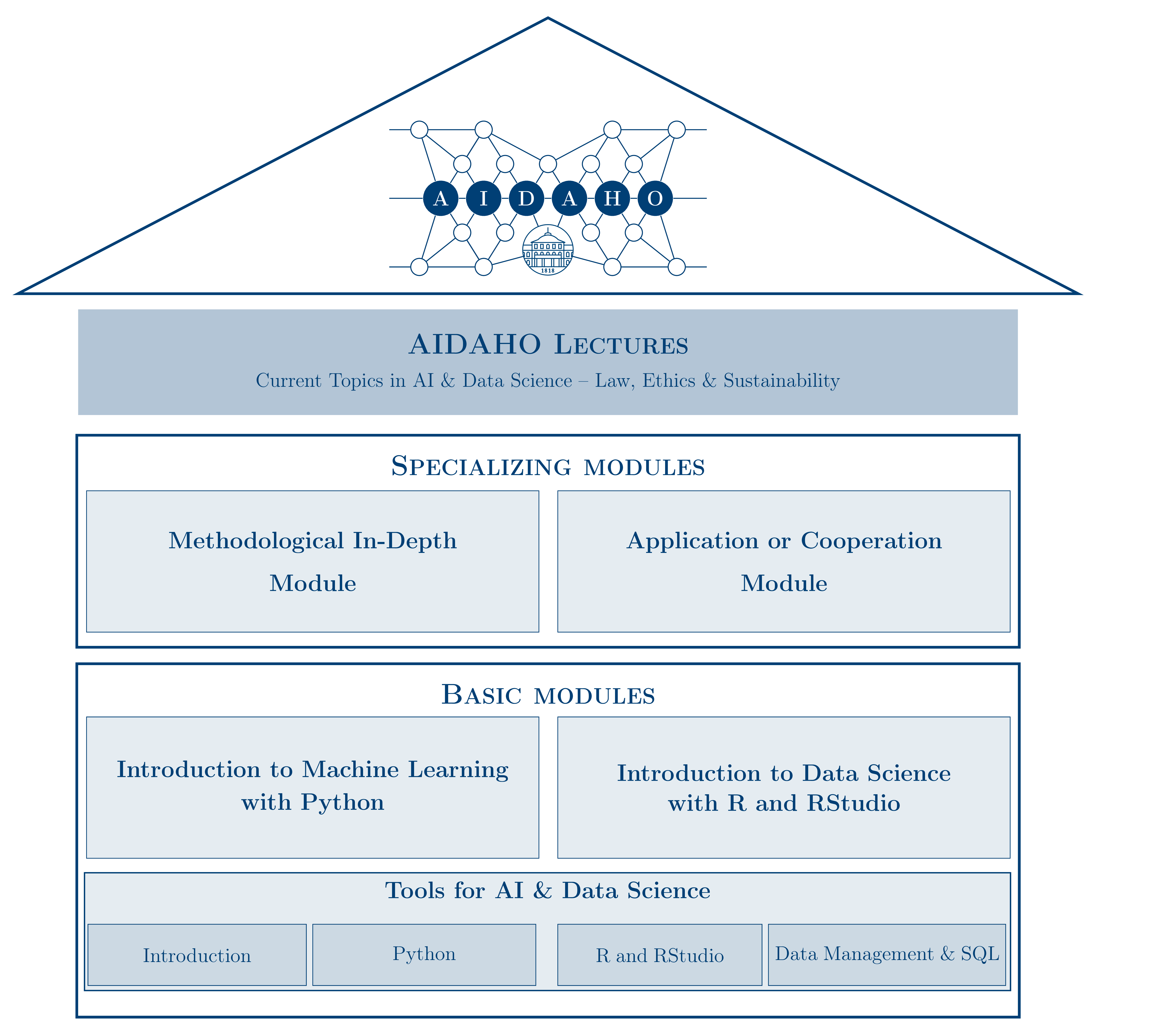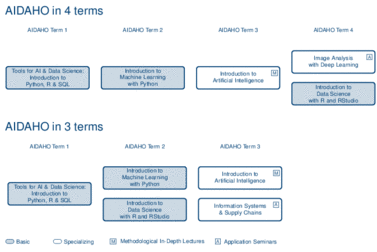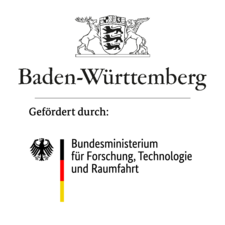The F.I.T. platform lists all further education courses at Hohenheim University. The AIDAHO programm uses the platform for the administration of the participants and courses.
The following document contains instructions on how to register for courses on the F.I.T. platform:
FIT-Anmeldung (german)
The AIDAHO program is completed alongside the main study program. After completing the introductory course "Tools for AI & Data Science: Introduction to Python, R & SQL", participants are free to attend the other four courses in any order. The following figure shows an example of how the AIDAHO program could be completed in four or three semesters:




